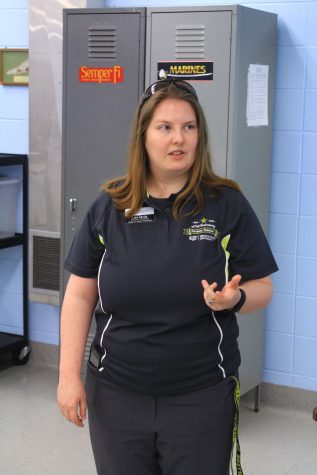Kansas interpreters face hurdles
Interpreters for the deaf possess a very specific set of skills allowing them to process a language spoken to them while simultaneously signing a second language to a deaf patron.
With interpreters in high demand locally as well as nationally, many college students have looked for interpreting programs to teach them the skills they need to have job security.
For most though, this desire ends in disappointment as there is only one school in the entire state offering a program to train future interpreters.
Johnson County Community College in Overland Park, KS is the only school in the state that has a full program devoted to interpreting and it still is only an associate’s degree.
Another potential disappointment for aspiring interpreters is that for a student to be accepted into JCCC’s program they must already possess a bachelor’s degree because of regulations of the National Interpreters Certification test requiring students to have reached that milestone.
“I see this as an issues,” says Kathy Stewart, who works in the Office of Disability Services at Wichita State, “Many students will not be interested in completing a bachelor’s degree and then continue their education another two to three years to gain an associate’s degree.”
The deaf see this as an issue as well.
“Sometimes we depend on having someone there who can help us,” said Scott Reed, a deaf man from Olathe, KS. “Requiring all the extra schooling makes people shy away from ASL (American Sign Language).”
With all the opportunity for interpreters in the Overland Park area by the Kansas School for the Deaf, it is not surprising there continues to be a lack of interpreters in cities like Wichita.
“There are so many opportunities in that area, rarely will students decide to take their newlydeveloped interpreting skills to any other area of the state. The rest of the state is still left being underserved,” said Stewart.
With the growth of the deaf population nationwide, more universities locally and nationally need to start offering full interpreting programs to help address the shortage so that we can better serve our deaf neighbors and friends.









